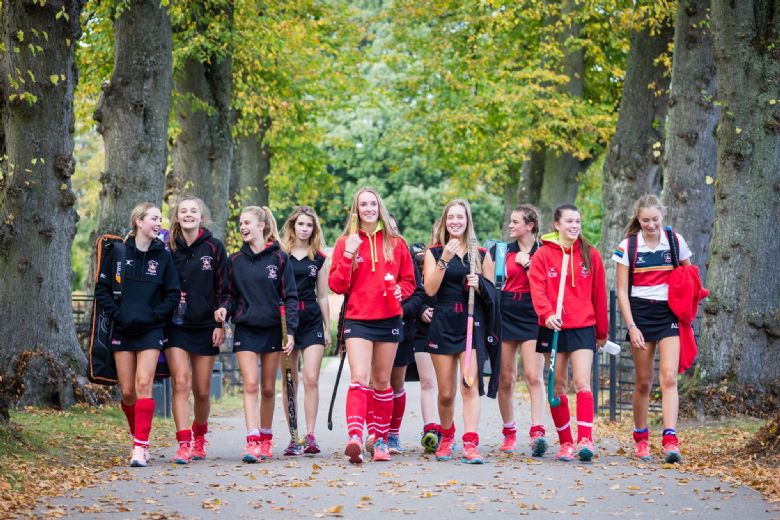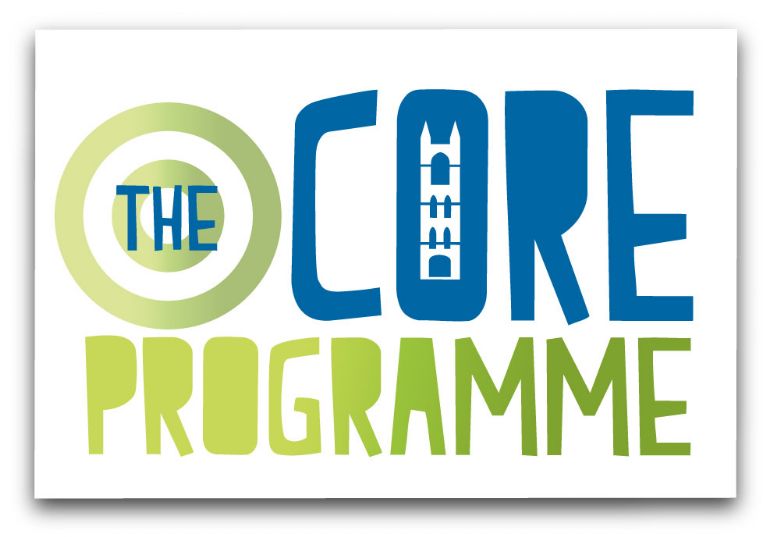Sixth Form at Princethorpe
The Sixth Form years have never been more critical. With increased complexity and competition for university places, apprenticeships and careers, the choices that are made now will undoubtedly have a major effect on the futures of all Year 11 pupils.
The Sixth Form at Princethorpe offers great  choice, quality teaching in small classes, a vast array of sporting, co-curricular, leadership and service opportunities coupled with excellent pastoral care and guidance, tailored to the needs of today’s young adults. Our staff give outstanding individual support to all students and this remains an essential feature of Sixth Form life.
choice, quality teaching in small classes, a vast array of sporting, co-curricular, leadership and service opportunities coupled with excellent pastoral care and guidance, tailored to the needs of today’s young adults. Our staff give outstanding individual support to all students and this remains an essential feature of Sixth Form life.
We offer A-levels in a large variety of subjects: all of the traditional ones and some more unusual ones, for example Politics, Law and Sociology. We also offer selected Level 3 BTEC courses in Business
Studies, Music Performance and Sport.
Group sizes are small. The average Sixth Form group has between eight and 14 students. In such subjects as Music and Art, which we value highly for their contribution to College life, courses will run even if there are only a small number of students.
Our Sixth Formers benefit greatly from a dedicated Sixth Form Centre with facilities including their own supervised Sixth Form Resource Centre, Lecture Theatre, Dining Room, Coffee Bar and Common Room for rest and relaxation during break and lunch-times.
There is a healthy blend of freedom and supervision in the Sixth Form. Academic progress is closely monitored through tutorials and regular progress reports.
Independent study, both supervised and unsupervised, is a key feature of Sixth Form life. Students are encouraged to work independently in subject areas as well as in the dedicated the Sixth Form Resource Centre.
Much time is spent on preparation for university and careers. Workshops, higher education fairs and individual interviews ensure students are well-informed and confident in their choices. Our dedicated Careers Team support and guide students towards the pathway that is right for them.
Staff/student relationships, both in and out of the classroom, are usually very different in the Sixth Form. Staff greatly enjoy teaching at this level; students are following courses that genuinely interest them, and are encouraged to approach teachers to ask for help in an informal, friendly atmosphere.
Monitoring of our Sixth Formers is very important to us, and we communicate regularly with home, through reports, Subject Progress Evenings and more informal contact from tutors. Our aim is to guide our students so that, by the time they are studying in Upper Sixth, they are effective, independent learners.
What makes us special?
This is a dynamic and caring Sixth Form, whilst big enough to offer a wide range of A-level and selected BTEC subjects, we are not so big that things seem impersonal. In fact, every Sixth Former at Princethorpe is treated as an individual and we offer 1-1 guidance and care to all. Our Sixth Formers develop a close relationship with their Form Tutors and with the Head and Assistant Heads of Sixth Form. We pride ourselves on good communication with students and, very importantly, with their parents. Our care begins with the help we offer in choosing subjects wisely and then continues in our close monitoring of academic progress. We help all our students, to reach their academic potential, so that they make the right decisions for the future.
 Pastoral care in the Sixth Form begins with the key relationship between the student and their Sixth Form tutor, who mentors and guides them through their two-year Sixth Form journey. The tutor gets to know their tutees exceptionally well which means they are well-equipped to assist in a variety of different ways including the provision of outstanding references for UCAS and other applications when the time arrives.
Pastoral care in the Sixth Form begins with the key relationship between the student and their Sixth Form tutor, who mentors and guides them through their two-year Sixth Form journey. The tutor gets to know their tutees exceptionally well which means they are well-equipped to assist in a variety of different ways including the provision of outstanding references for UCAS and other applications when the time arrives.
In addition to the leadership of the Head of Sixth Form, we are fortunate to have three Assistant Heads of Sixth Form with specific responsibilities. Two are responsible for the pastoral and academic overview for a particular Sixth Form Year Group, remaining with them for the duration of their time in Sixth Form and building a close rapport with the students. The third Assistant Head works across both year groups with a focus on supporting academic progress whilst overseeing the wider Sixth Form curriculum.
In addition, students have access to support from their subject teachers and co-curricular staff and mutually from fellow students and older Sixth Formers. Where needed students can also receive professional advice from our resident counsellors and all are encouraged to reflect and take responsibility for their own well-being through assemblies, coaching and individual meetings.
Sixth Form is most definitely a time for self-development and fun. We offer a wide range of activities which reflect the emphasis we put on helping students to become happy, well-balanced and successful young people. Our Lower Sixth Formers help younger pupils in their lessons, carry out some duties such as supervising pupils in our tuck shop and act as ambassadors for the College when showing around prospective pupils and their parents. All have a number of opportunities where they are encouraged to speak in front of a relatively large audience – a group of their peers or, on occasion, a group of parents. We do feel that our Sixth Formers gain a great deal from these opportunities and it is lovely to see them grow in selfesteem and social graces over the two years.
To find out more about Sixth Form life download our Sixth Form Admissions Information Booklet here.
Sixth Form Dress Code
After consultation with students in the form of a survey, followed by committee meetings between staff and Sixth Form representatives, a new dress code for Sixth Formers has been compiled and is now in force.
PLEASE CLICK HERE TO VIEW THE NEW DRESS CODE
extended project qualification
The Extended Project Qualification (EPQ) is an exciting AS-level qualification that gives you the chance to explore something that really interests you - whether in a practical way, like designing or performing, or researching, investigating and writing. If you enjoy working independently and developing new skills, the Project Qualification is for you. Some universities also make more favourable offers to students who are predicted a high grade in their EPQ.
The EPQ is also offered to Sixth Form students and is timetabled alongside A-levels. With its strong focus on thinking and analytical skills, the EPQ develops the independent learning skills so highly valued by both universities and future employers. Like a mini PhD, and worth the equivalent of half an A-level qualification, the EPQ comprises an individual research project rather than an exam, requiring pupils to produce a 6,000 word dissertation or scientific investigation, or to manufacture an artefact or stage a performance.
Upon completion, they must give a ten-minute presentation on their research to teachers and a group of fellow pupils and take questions at the end. Pupils are assigned a mentor who provides advice and guidance as required and with whom they meet during timetabled sessions for direct teaching, instruction and assessment, or other
structured learning such as directed assignments or supported individual study. Pupils also meet regularly with the librarian and other EPQ pupils to be taught the necessary research and independent learning skills needed
to undertake such a project. Pupils’ own private study is an additional commitment to these guided learning hours. Extended Projects are welcomed by many universities, and admissions tutors may
well use them in differentiating between applicants for offer making.
the core programme
 Comprising a varied range of topics and speakers and incorporating careers and higher education advice, the CoRE Programme is closely linked to the ethos of the college. The aim is to develop qualities such as Commitment, Openness, Reflection and Enthusiasm so that students grow in maturity and confidence as they look to life beyond Princethorpe College.
Comprising a varied range of topics and speakers and incorporating careers and higher education advice, the CoRE Programme is closely linked to the ethos of the college. The aim is to develop qualities such as Commitment, Openness, Reflection and Enthusiasm so that students grow in maturity and confidence as they look to life beyond Princethorpe College.
The weekly CoRE lessons for both Lower and Upper Sixth incorporate personal, social, health and citizenship issues, as well as relationship and sex education.
Over the course of the year, we invite a broad range of speakers to address the students on topics ranging from driving safety or cyber-crime to animal welfare or the prison system. In addition, students receive essential advice
and information about careers, applying to university, vocational courses, apprenticeships, the world of work, gap year travel and personal finance.
As part of the CoRE Programme, issues are explored from a moral and religious perspective. Led by the RS department a separate timetabled course on the Philosophy of the Person (C-POP) and an enquiry using video
and discussion into key elements of the Catholic faith is offered to all pupils in Lower Sixth. In a more informal, seminar-style setting pupils can take one period a week to share their views and examine some of the big questions in life.
In the Lower Sixth, an additional Enrichment period within the CoRE Programme each week is specifically set aside so students can extend their interests and to develop new skills. An. It offers options such as:
• Care home visiting
• Yoga fitness
• Wildlife watching
• Mindfulness
• Self defence
• Basic sign-language
• General first aid (delivered and certified by First Aid for Schools)
• Essential cooking skills
• Boxercise
• Ultimate frisbee
As a whole, the CoRE Programme encourages students to develop new skills and interests, to think critically, logically and constructively about the world in which they live, and to look forward to the challenges and opportunities that lie ahead.
Additional qualifications being explored for September 2024
MFL for Business
Available in French or Spanish, this course aims to boost your linguistic skills and employability prospects and is designed to give learners an insight into the world of international business by studying practical business skills in a French or Spanish setting.
Core Mathematics
This AS-level course is designed for pupils who have an interest in Mathematics or are taking subjects which include a significant mathematical content (such as the Sciences, Economics or Psychology) and who are not taking A-level Mathematics. It allows you to continue to develop your mathematics skills in the Sixth Form and supports you in tackling the mathematical elements in your other subjects.
Sports Leadership Award
This course will suit pupils with an interest in sports participation but more importantly those who enjoy working with younger children and/or have ambitions to extend their coaching, teaching and leadership skills through higher education.
Gold Arts Award
This course is offers fantastic opportunities for pupils to extend their arts practice and develop vital transferable skills in leadership by taking on challenges in an art form and participating in a range of arts activities, ranging from research to leadership.
AS Latin
This course builds on the GCSE, introducing learners to a greater range of vocabulary, accidence and syntax. This requires the detailed study of prose and verse literature, inspiring and motivating learners to gain a deeper understanding of the life and culture of the ancient world. This course may run in parallel with the A-level in Latin.
Fourth A Level/BTEC
A small number of students opt to study 4 subjects at A-level or BTEC. This allows a greater breadth of study but also carries the most significant workload.
